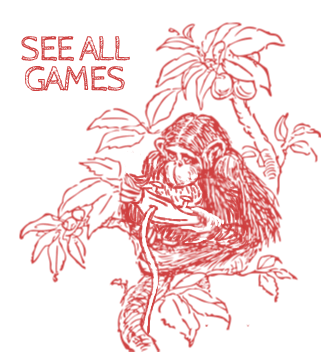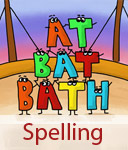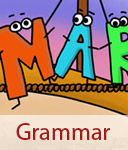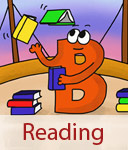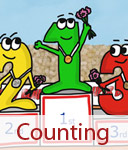
Punctuation
Year 3 & 4
Punctuation Year 3 & 4 KS2. Support on punctuation for kids with Super Brainy Beans. Primary homework help with commas, apostrophes and speech marks.
Pick a level
Commas in sentences
Commas can be used to break a sentence.
I like playing football in the garden, but I prefer the park.
![]() Careful with using commas in the right place, it can really change the meaning of the sentence.
Careful with using commas in the right place, it can really change the meaning of the sentence.
Let's eat, Granny.
Let's eat Granny.
Commas can also be used on either side of someone's name when they are being addressed.
Will you, Adam, please put your pens away for me?
Commas are used to separate the day of the month from the year.
I visited my uncle on March 6th, 2012, in Manchester.
Commas have to be used to separate parts of an address.
I lived in Brook, Hampshire, for 10 years before I moved.

Commas and adverbial phrases
Commas are also used when you have adverbial phrases in a sentence. Let's see what adverbial phrases are.
Write a simple sentence.
I played tennis.
Now add an adverbial phrase to the beginning of the sentence joining it with a comma.
On Saturday, I played tennis.
If you add an adverbial phrase to the end of the sentence you do not use a comma.
I played tennis with James and Anna.

Apostrophes to show belonging (possession)
Use an apostrophe to show that something belongs to someone. The rules below all work when talking about more than one person (plural).
If the plural ends with s then just add '.
girls = The girls' netball team.
If the plural does not end with s then add 's.
children = The children's classroom.

Speech marks
Also known as inverted commas, there are some rules when using speech marks.
Put speech marks around text when someone is talking. And always use a capital letter at the beginning.
"I'll be back in half an hour," Amy shouted.
Separate the speech from the rest of the sentence with a comma.
"I'm at the shops," said Jill.
You may want to use some other punctuation. This is fine, just put it before the ending speech marks.
"What time is it?" asked Bill
Speech can be broken up by inserting information about who is talking. This is the only time you do not use a capital letter.
"I'll meet you by the gate," said Sarah, "then we will have our picnic."
If you break the speech at the end of a sentence then you should use a comma and a full stop.
"I got a letter from Dad," said Nina.
"He is in France."
Always start a new paragraph when the next person is talking.
"What do you want for lunch?" Mum asked. "There are sausages or fish fingers in the fridge."
"Fish fingers would be good," replied Sam.
![]() Sometimes you see single speech marks ' ' or double speech marks " " in books. It is ok to use either. Just choose which one you will use and stick with it through your writing.
Sometimes you see single speech marks ' ' or double speech marks " " in books. It is ok to use either. Just choose which one you will use and stick with it through your writing.
Practice writing with speech marks with this worksheet.

